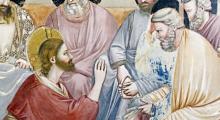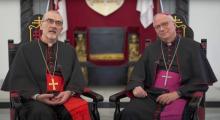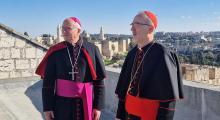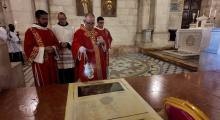Issued by the Catholic Center for Studies and Media - Jordan. Editor-in-chief Fr. Rif'at Bader - موقع أبونا abouna.org
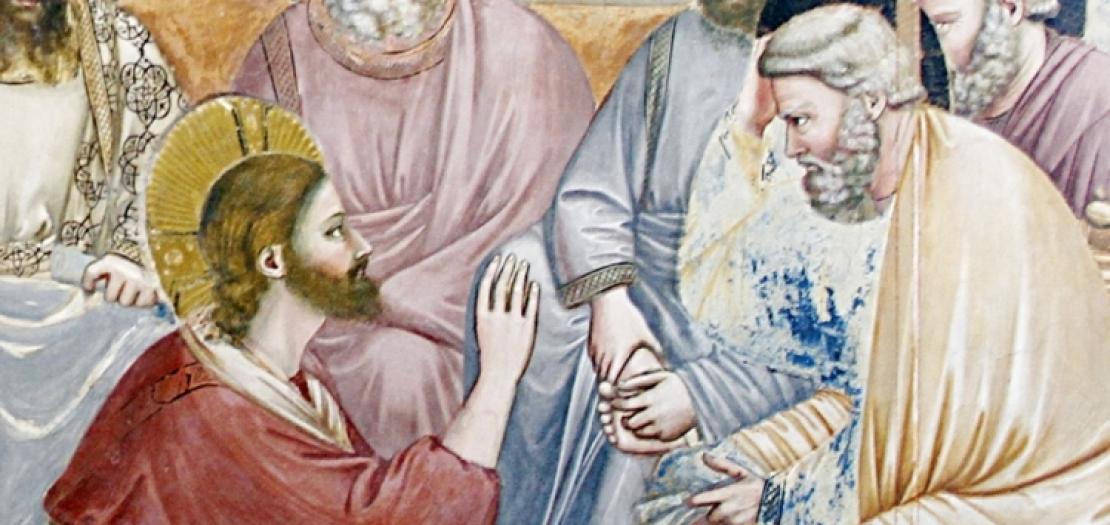
Following is the text of the meditation by His Beatitude Cardinal Pierbattista Pizzaballa, Latin Patriarch of Jerusalem, on the 27th Sunday of Ordinary time, dated October 5, 2025:
Today”s Gospel passage (Lk 17:5-10) opens with a request the apostles make to Jesus to increase their faith: «The apostles said to the Lord, “Increase our faith”. (Lk 17:5)
In this chapter, Jesus addresses aspects of community life, such as scandal, guilt, and forgiveness. The apostles’ question arises within the context of a real and concrete community that must learn to deal with the evil present within it. It is the question of those who recognize their own fragility in the face of the evil they repeatedly encounter. Verse 4 (“If your brother wrongs you seven times in one day…” (Luke 17,4) shows that the possibility of brothers harming each other is not remote; it is a daily reality.
Faced with this possibility, confronted by evil, the apostles feel powerless: they know they cannot overcome it on their own. Evil is like the mulberry tree Jesus mentions a little later. (Luke 17:6). The mulberry tree was common in Jesus’ time and had special characteristics: its roots were strong and penetrated deep into the ground, making it a long-lived tree, difficult to uproot. So, it is with evil. Uprooting it can sometimes seem impossible.
Paradoxically, in the face of this image of strength and endurance, Jesus offers an image of littleness: the mustard seed. “The Lord replied, “If you have faith the size of a mustard seed, you would say to this mulberry tree, ‘Be uprooted and planted in the sea,’ and it would obey you.” (Luke 17:6) This is not a naive image. The disciples had asked for greater faith, revealing the logic in their hearts that strength can only be overcome by even greater strength.
To the disciples who asked for more faith, Jesus responded by pointing to one of the smallest things visible to the human eye: a mustard seed. That is precisely what faith is: the more it is aware of its smallness - able to accept its own poverty and that of others - the more alive and powerful it becomes. The less it relies on its own strength, the more it opens itself to the measure of God’s strength and love.
This faith, small and humble, is actually capable of great things, as the Gospels recount whenever a man or woman turns to Jesus with all the trust they can muster. Then they experience that within themselves, God’s very life is at work - his healing and saving power. The mulberry tree, so difficult to uproot, even ends up in the sea, where it cannot survive.
Jesus’ response, however, goes further. He continues with the brief parable of the unprofitable servant, (Luke 17:7-10) the servant who simply does his duty, expecting no gratitude from his master.
In this parable, too, Jesus continues the same teaching. The servant is also an image of littleness. The servant was considered a person of little worth, as invisible as a mustard seed.
But again, it is not about growing out of this littleness, making one’s service count, becoming a master, or seeking glory.
It is not about using one’s service as a commodity to be traded for recognition or value.
For it is precisely this “uselessness” that is the real strength; it is the space where freedom from all pride and vanity arising from our supposed merits matures.
For the faith of the little ones knows that God’s grace does not depend on our unstable performance, but on His free gift, which transforms life when we entrust ourselves to Him with total and free trust.
God’s love is not a reward, but a gift that precedes us, and it is this gift that generates in our lives the freedom to serve and to love, and to do so with the lightness of those who trust the One who first trusted us - trusting in what we are and what we can still become.
+ Pierbattista


